The main aim of the WISH (Water In-environmental Sanitary & Hygiene) project, developed by Archaeology & Development Foundation (ADF) and supported by the Almayuda Foundation since 2018, is to bring clean, healthy water to three primary schools and educate children about hygiene, using adapted water points and sanitary facilities.
The Almayuda Foundation returns to Phnom Kulen, the ‘Lychee Mountain’, a natural plateau declared a national park near the Angkor Wat site in north-western Cambodia, where it has been supporting projects run by the Archaeology and Development Foundation (ADF) since 2014.
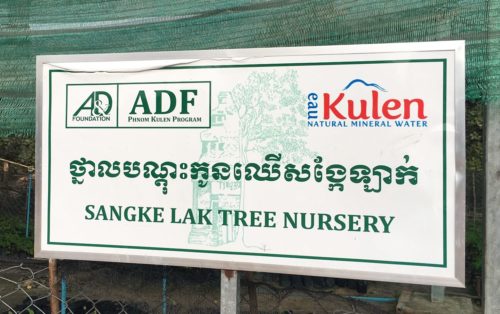
Inspired by this joint experience, Almayuda committed itself without hesitation to a partnership with the ADF in a new programme, entitled WISH, to bring water and to install effective sanitation facilities in three primary schools in very poor villages, Khlah Khmum, Sangke Lak and Ta Peng. In addition to carrying out the necessary works, the aim is to educate children (a hundred or more per school) in everyday hygienic activities (washing hands, brushing teeth, etc.) and to transform schools into attractive places conducive to education.
After an initial phase in which teachers and the pupils’ parents were consulted, followed by a field survey, the project entered the implementation stage in the summer of 2018 with the launch of various maintenance, refurbishment and infrastructure construction works.
WISH and WASH
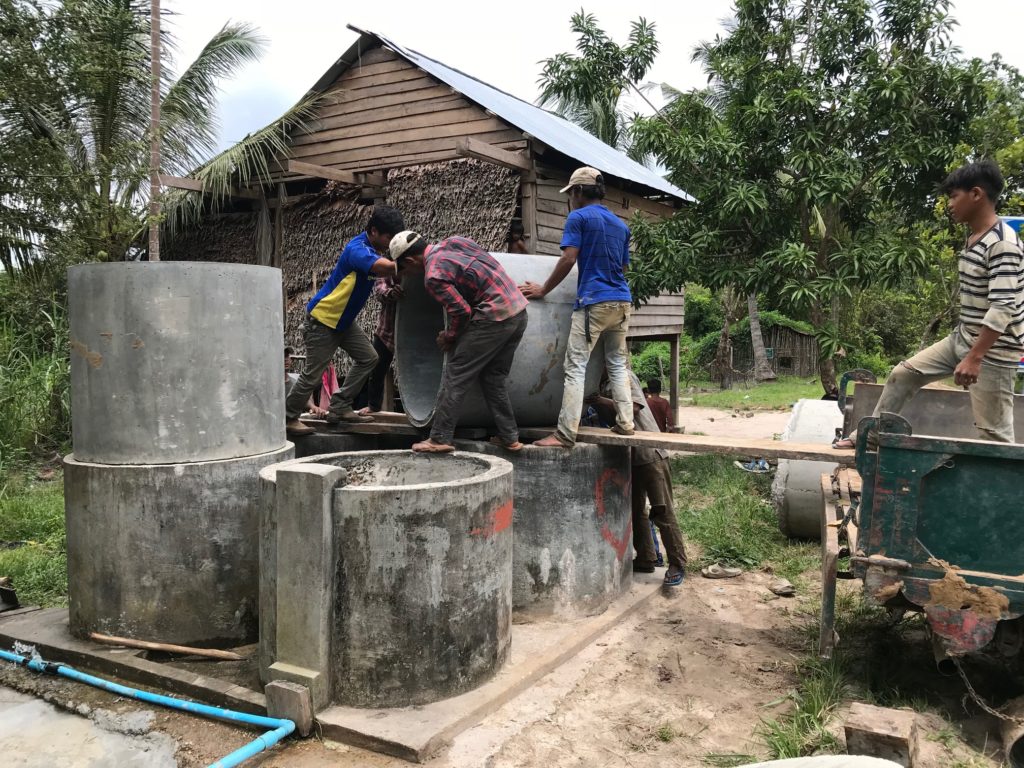
WASH, which stands for “WAter, Sanitation and Hygiene”, is a key stage in the WISH project. It began in July 2018 in Ta Peng with the installation of a spring water collection system, extended by a 900-metre-long conduit and two storage tanks made of concrete. By September that same year, the system was supplying water to ten families in the village, as well as the kitchen, toilets and plant nursery in their school
From the water source to the toothbrush, everything must be thought of! It is the prerequisite for ensuring the development and spread of best practices, which are essential to the health of an entire population.
In Khlah Khmum, supplying water to the primary school was especially problematic and the existing system too ineffective for it to be worth repairing. New collection and pipework infrastructure were therefore constructed and renewed during the third quarter of 2018. At the same time, the toilets were renovated, washbasins, bins and water filters were installed and a playground and a rest area were put in place.
Lastly, in Sangke Lak it was a matter of completing a job, the first phase of which had been carried out in the framework of a previous programme. The new work consisted of the installation of 600 metres of pipework (out of a total of 1.7 km), as well as the renovation of facilities in the school, all of which was completed in the first quarter of 2019.
Soap and toothbrushes!
The first part of the mission was to set up the supply networks and to build or renew, in some instances completely, the sanitation infrastructure in schools. The second part was to teach children to use the washbasins, sinks and toilets correctly and systematically on an everyday basis in order to gradually instil in them a positive sense of discipline.
From the water source to the toothbrush, everything must be thought of! It is the prerequisite for ensuring the development and spread of best practices, which are essential to the health of an entire population.
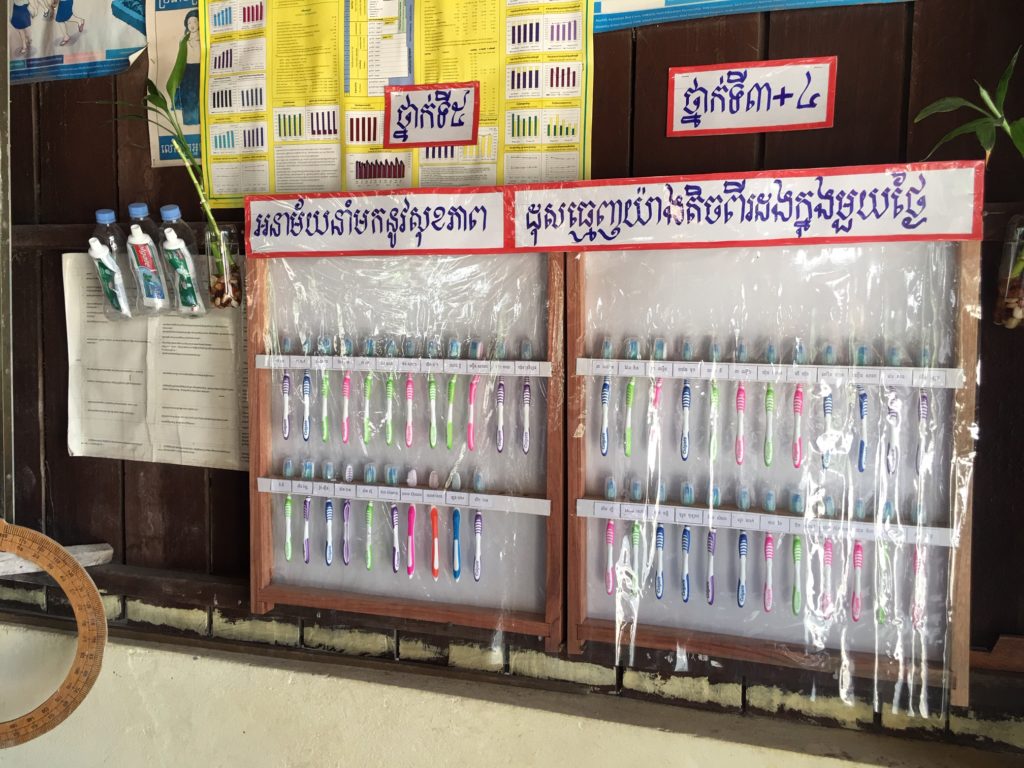
Water, hygiene, health… the environment
Because water, hygiene and the preservation of the environment are closely linked to health, WISH has developed a series of complementary actions.
Education and prevention are first and foremost, with the regular intervention of nurses from the local health post, who spread messages to raise people’s awareness and who monitor children’s health.
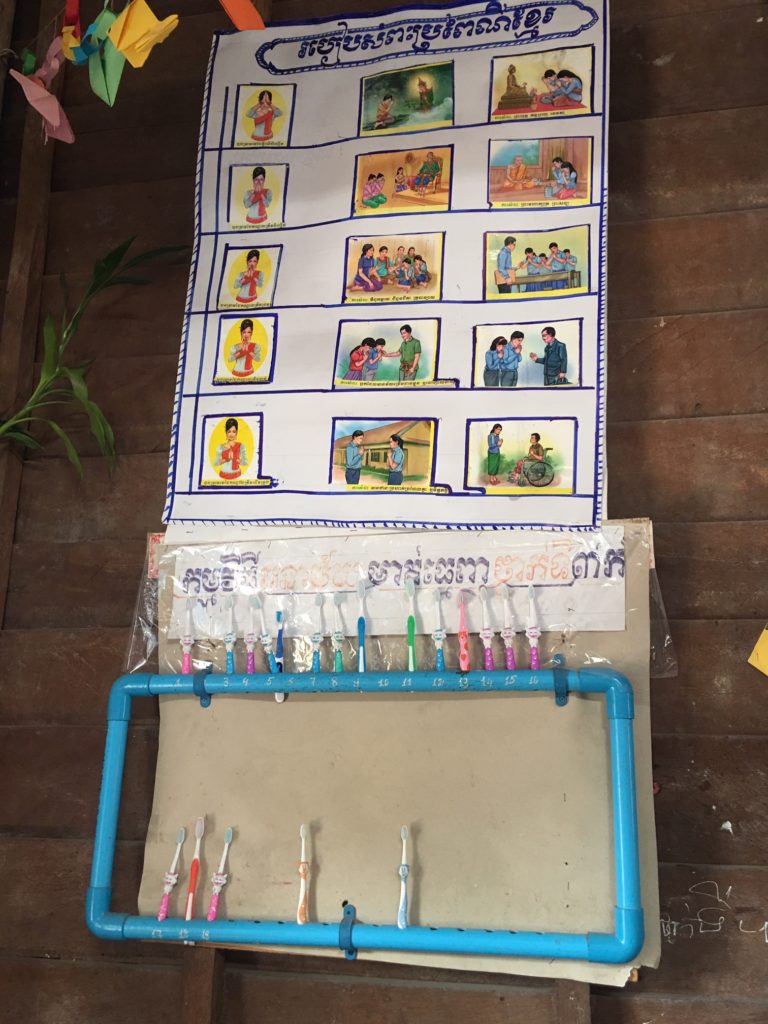
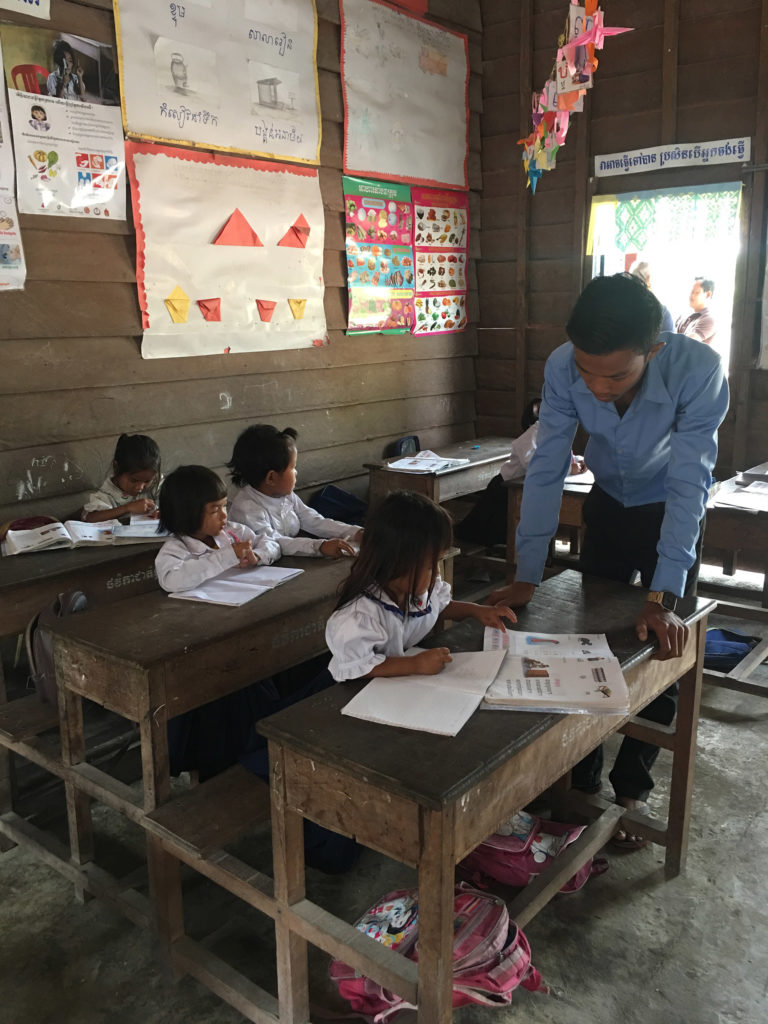
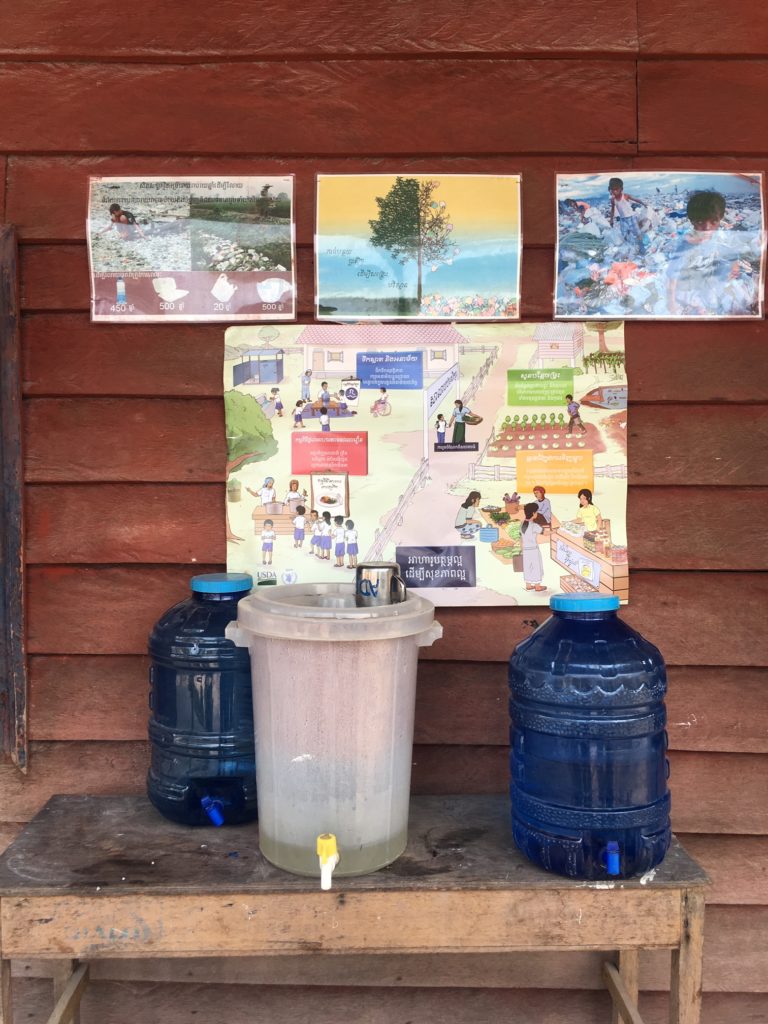
Cleanliness comes next, with the organisation of a “Village Clean Up Day”, held bimonthly or every month when schools are on holiday. Pupils at the schools in Khlah Khmum and Sangke Lak, supervised particularly by their teachers and parents, gather up any rubbish, which is the burnt in the village incinerator.
The final aspects are agriculture and the environment, with the involvement of the young schoolchildren in looking after the three nurseries for trees, which supply young plants for the reforestation of the national park and for an initial vegetable garden at the school in Sangke Lak. A second vegetable garden is in progress on land at the school in Khlah Khmum.
Sustaining the actions
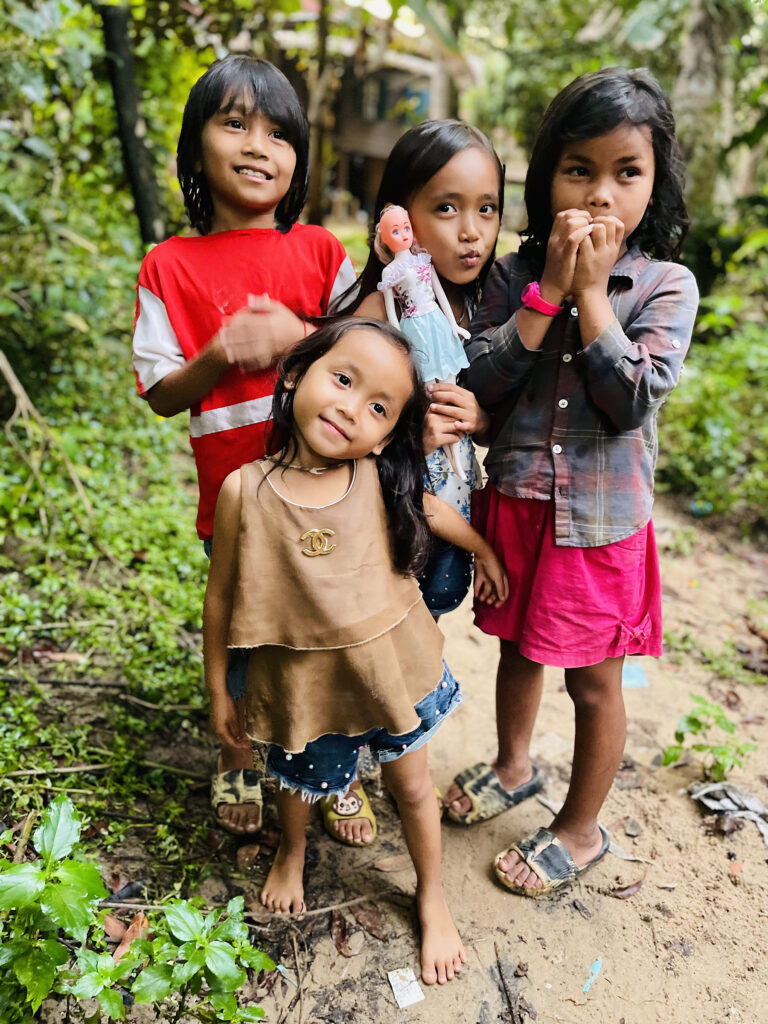
Acquiring good personal hygiene habits takes years of learning, particularly in precarious social environments, where households do not have adequate access to water, let alone a bathroom and toilet. Created in 2018, the WISH programme has therefore been extended, adapting to the difficulties caused by the COVID 19 pandemic.
During the course of the programme, End-Line, an independent external body, carried out an evaluation, which concluded that the programme was effective and recommended that it be continued and even extended.
Encouraged by this positive assessment, Almayuda has continued to support the project as a partner.
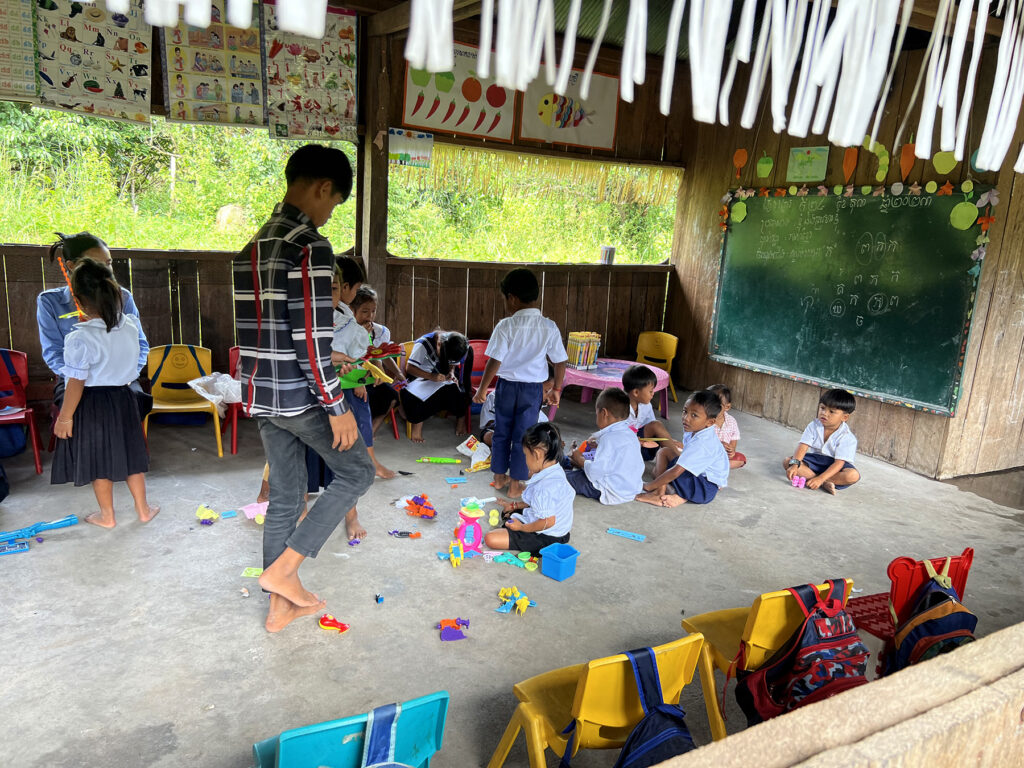
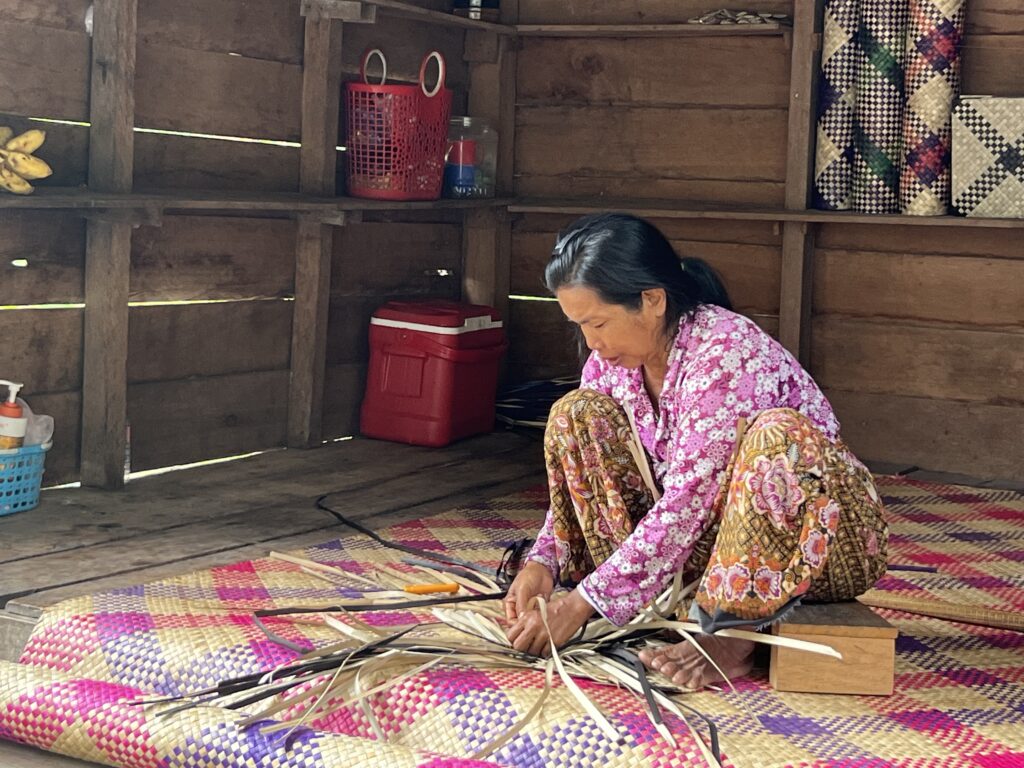
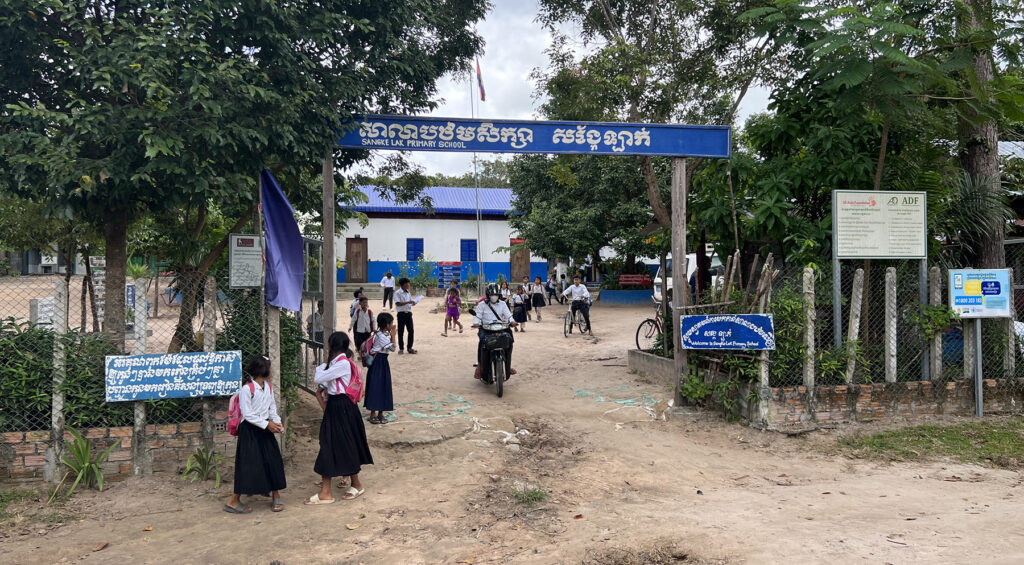
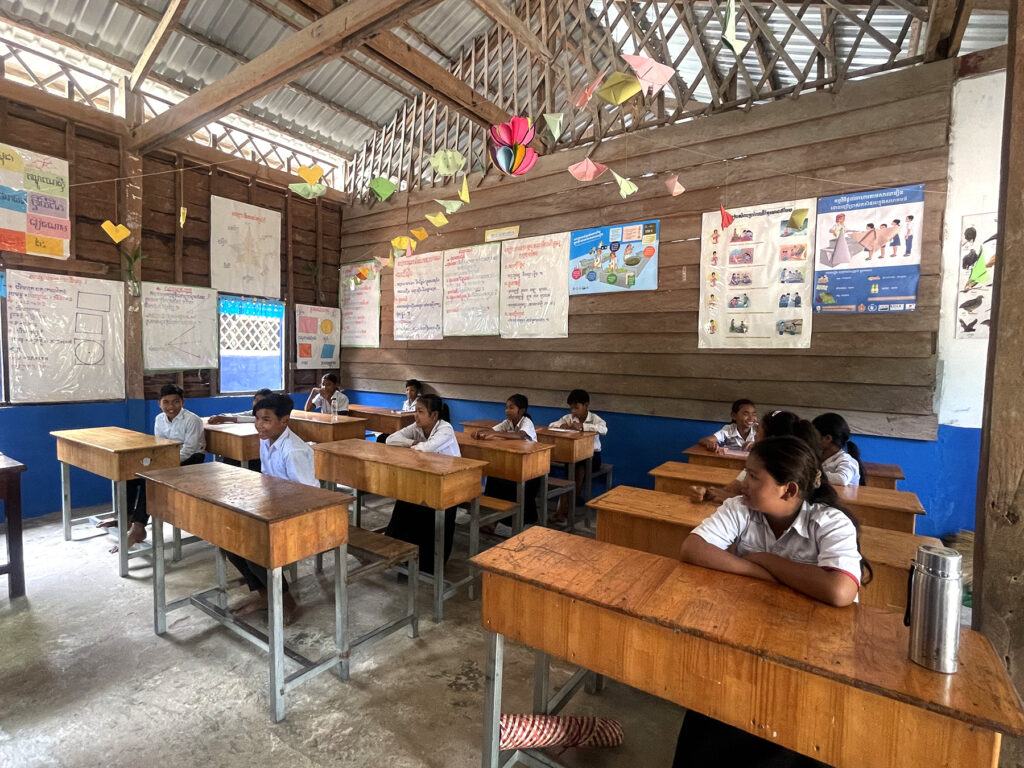
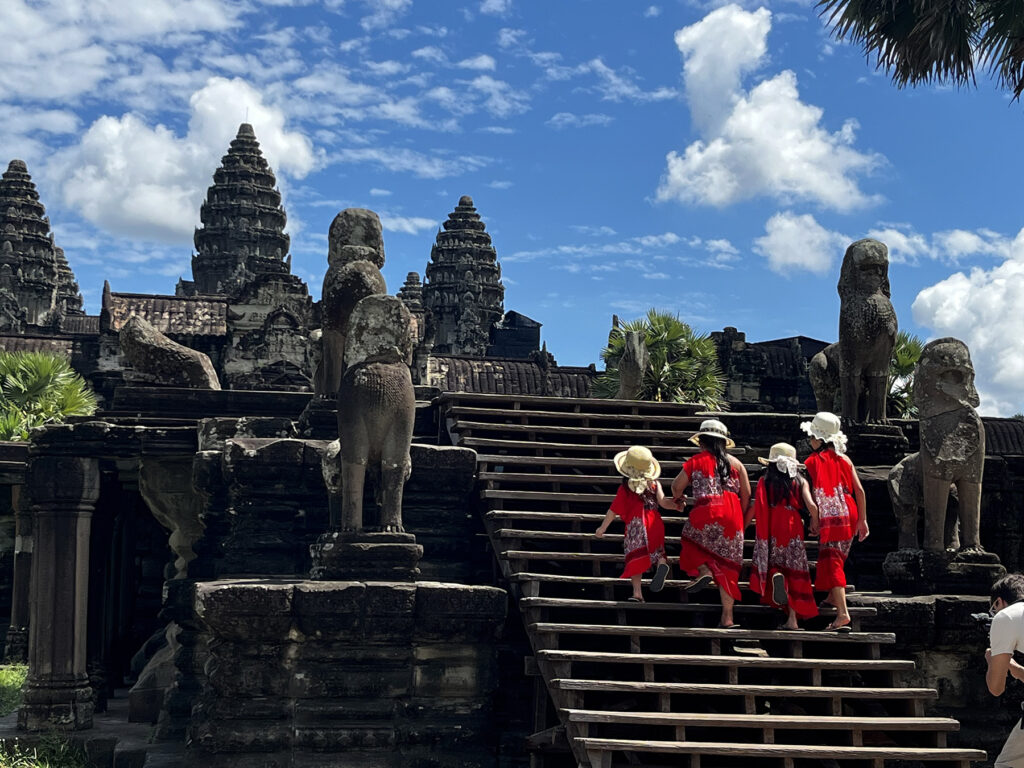
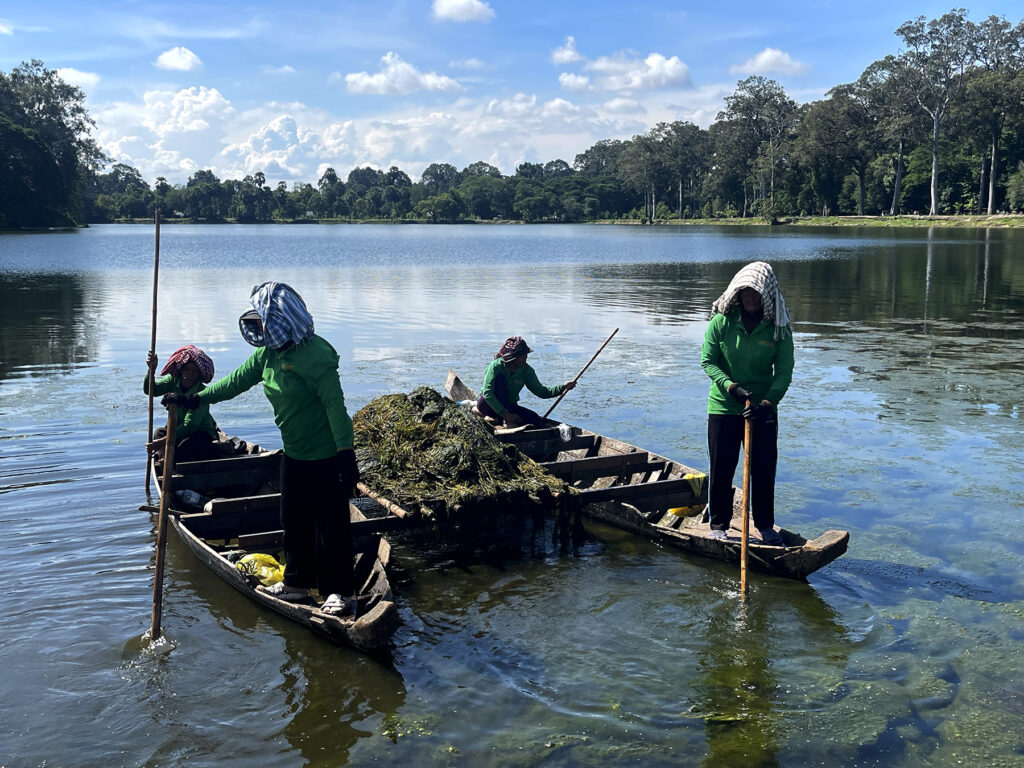
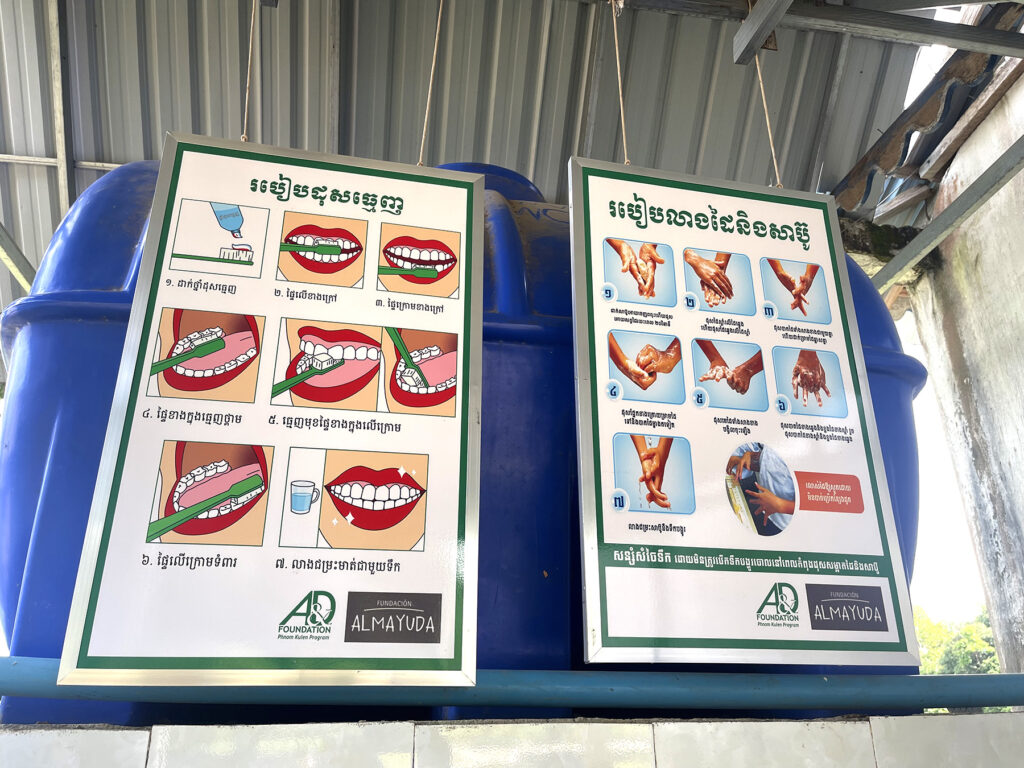
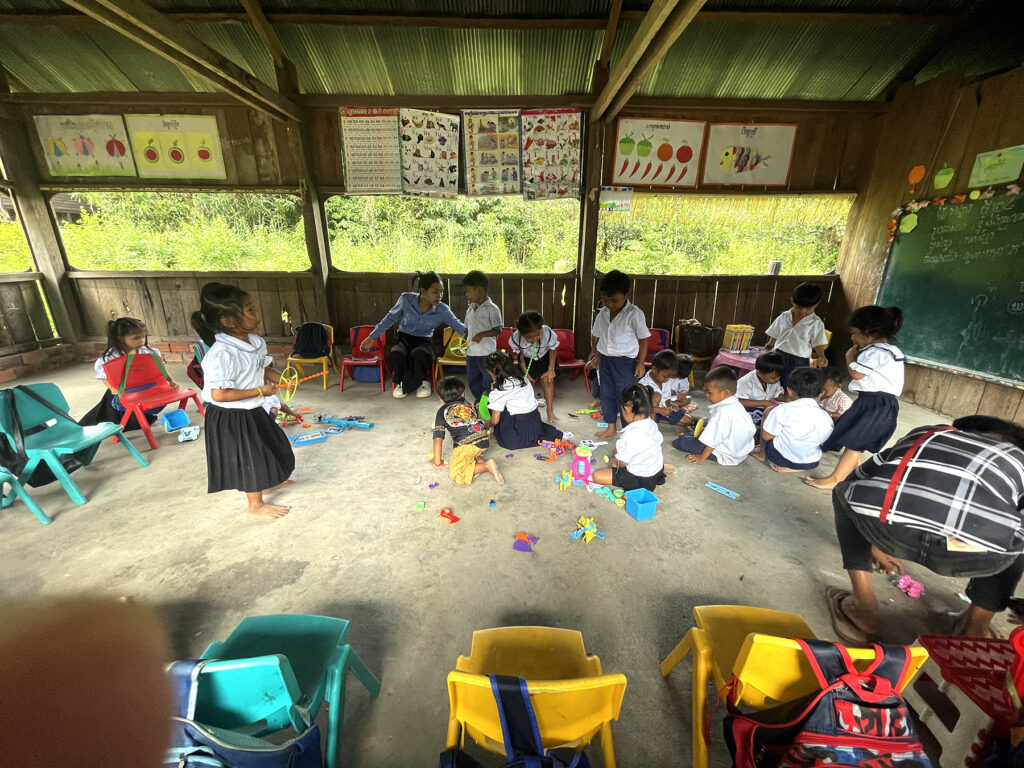
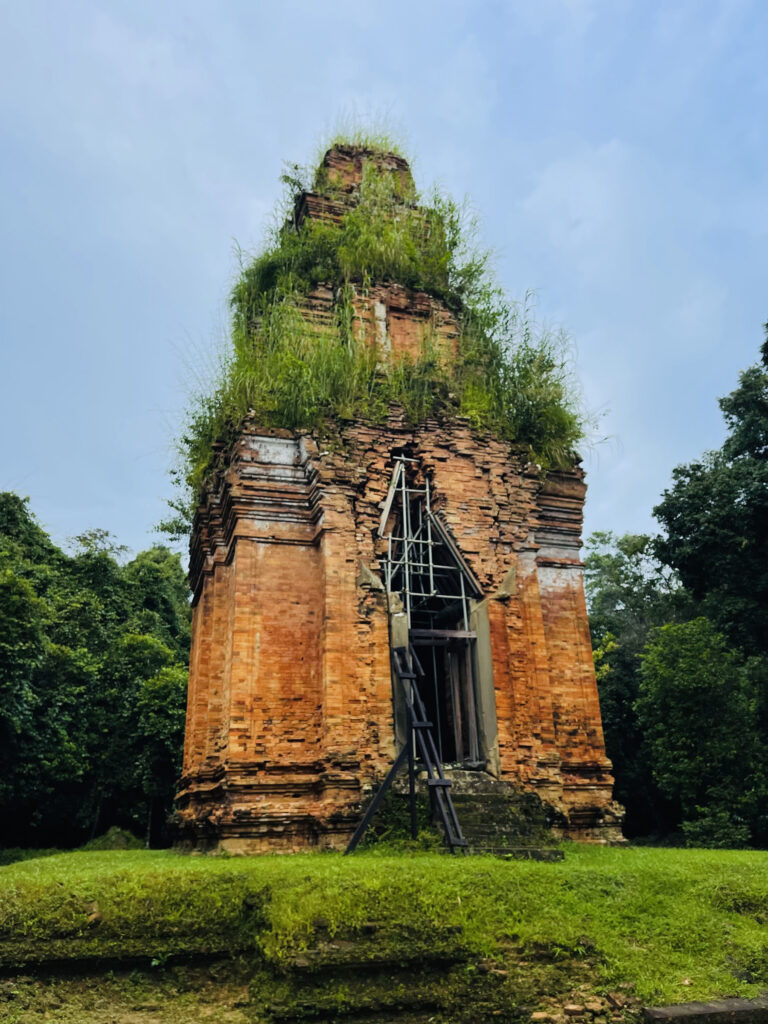
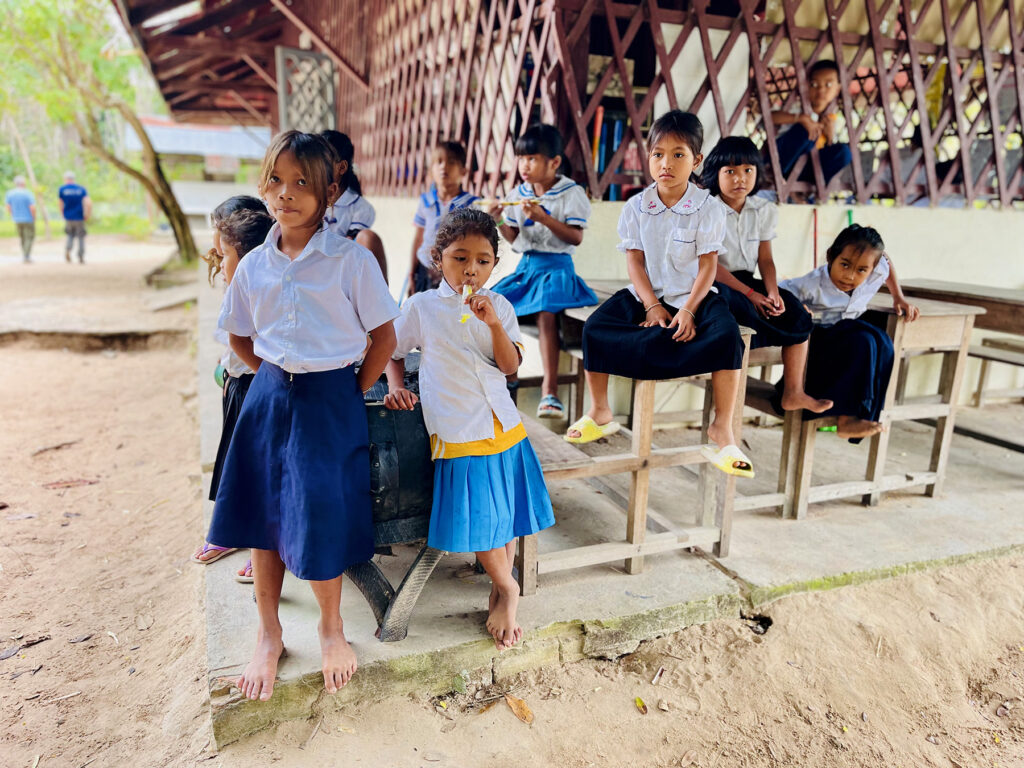
Photos DR
Useful link : www.adfkulen.org

